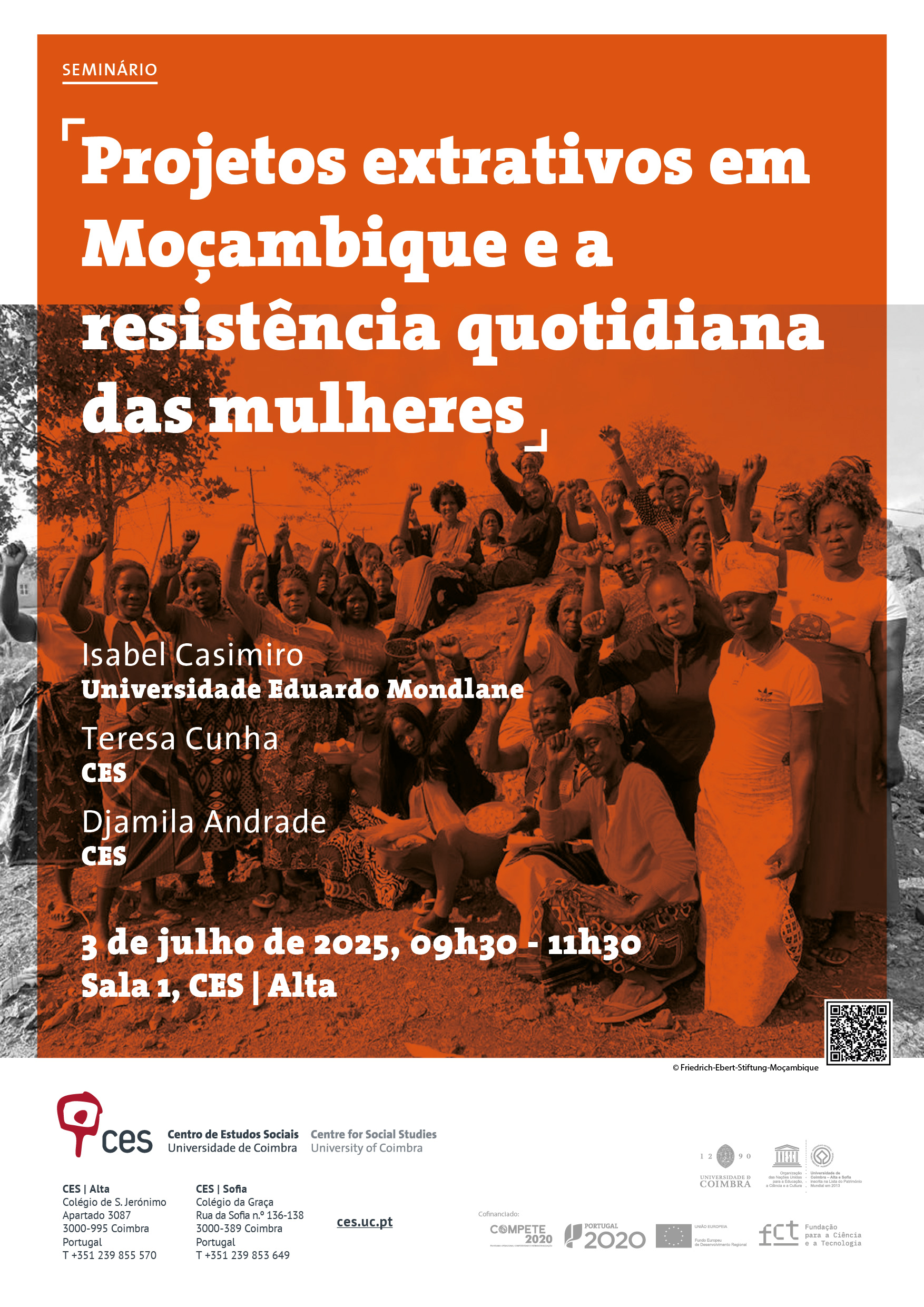Seminar
Extractive projects in Mozambique and women's daily resistance
July 3, 2025, 09h30-11h30
Room 1, CES | Alta
Since the beginning of the 21st century, Mozambique has been investing in a development model centred on extractivism, promoted as an engine of economic growth. However, this model has led to the appropriation and devastation of territories, profoundly affecting local communities, especially rural women who depend on the land for their livelihoods.
Despite promises of well-being, extractive megaprojects have generated inequality, land grabbing, forced displacement and environmental degradation. Women are disproportionately affected, becoming more vulnerable to violence and the precariousness of their living conditions.
However, these same women have led resistances to extractivism in various regions of Africa, including Mozambique, where they demand other ways of living and relating to the land. Resistance can be understood through the creation of solidarity support networks within the community, where strategies of reciprocity and non-commercial redistribution take prominence.
It is in this context that we propose a talk with Isabel Casimiro, a leading figure in Mozambican feminist studies, Teresa Cunha, who has extensive experience working with women, peace and feminist economies in Mozambique and has recently been in the country, and Djamila Andrade, a PhD candidate at CES, whose research analyses women's resistance to the gas extraction project in Inhambane from an ecofeminist perspective.
Programme
09:30-09:40 - Welcome and initial reflection - Luciane Lucas dos Santos
09:40-10:00 - Presentation by Isabel Casimiro
10:00-10:20 - Presentation by Teresa Cunha
10:20-10:40 - Presentation by Djamila Andrade
10:40-11:20 - Plenary session
11:20-11:30 - Final reflections
Bio notes
Isabel Casimiro is a sociologist and professor at Eduardo Mondlane University. She coordinates the Department of Development and Gender Studies and is a leading figure in feminist studies and women's movements in Mozambique.
Teresa Cunha is a CES researcher and professor-coordinator at the Polytechnic Institute of Coimbra's School of Education. She holds a PhD in sociology from the University of Coimbra and has conducted research on feminist economies in Mozambique, South Africa, and Brazil. She has extensive experience in non-formal feminist and postcolonial education, women's studies, and peace studies.
Djamila Andrade is a doctoral student on the Human Rights in Contemporary Societies programme at the Centre for Social Studies (University of Coimbra). Her research focuses on women's resistance to the impact of the gas extraction project in Inhambane from an ecofeminist perspective.


